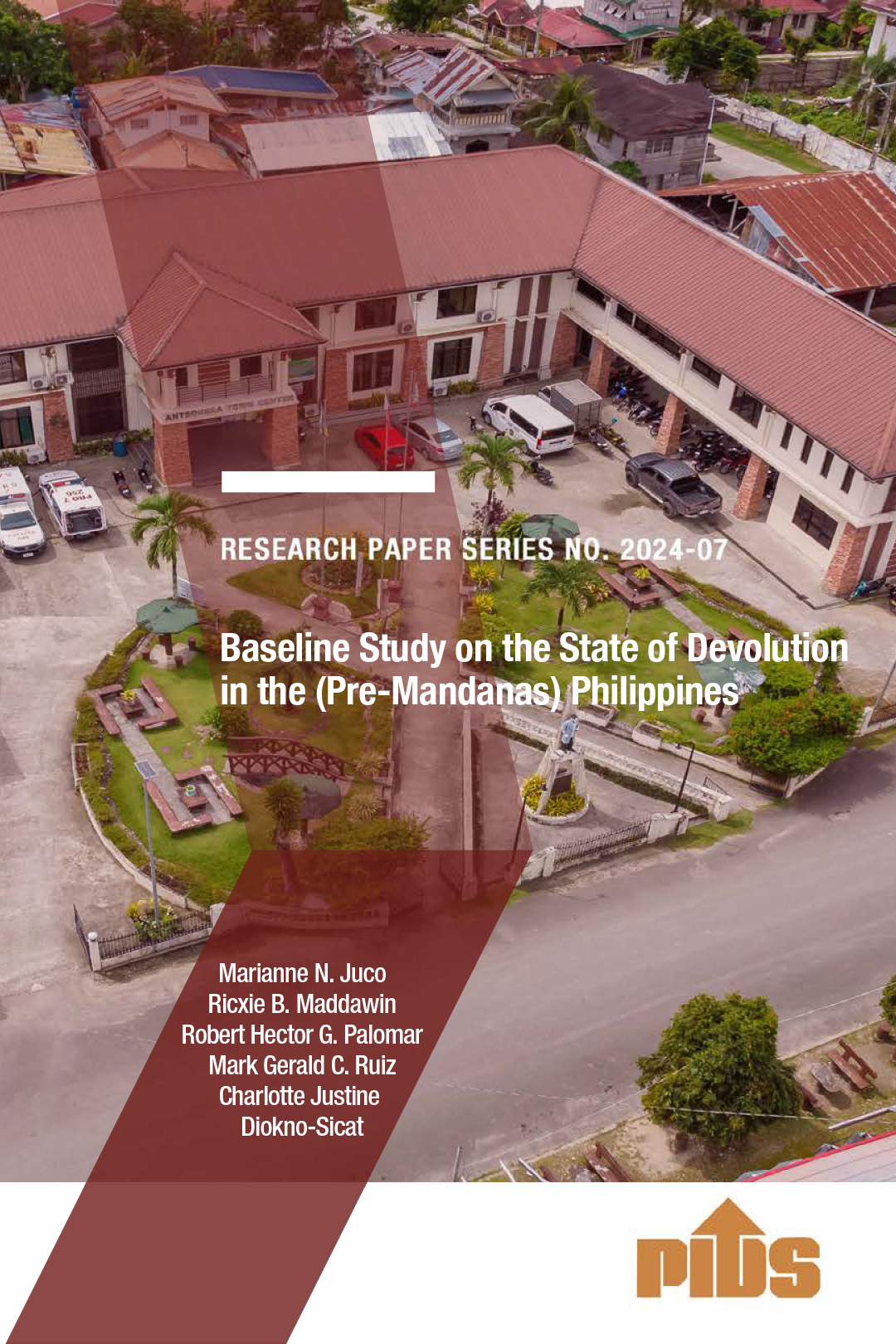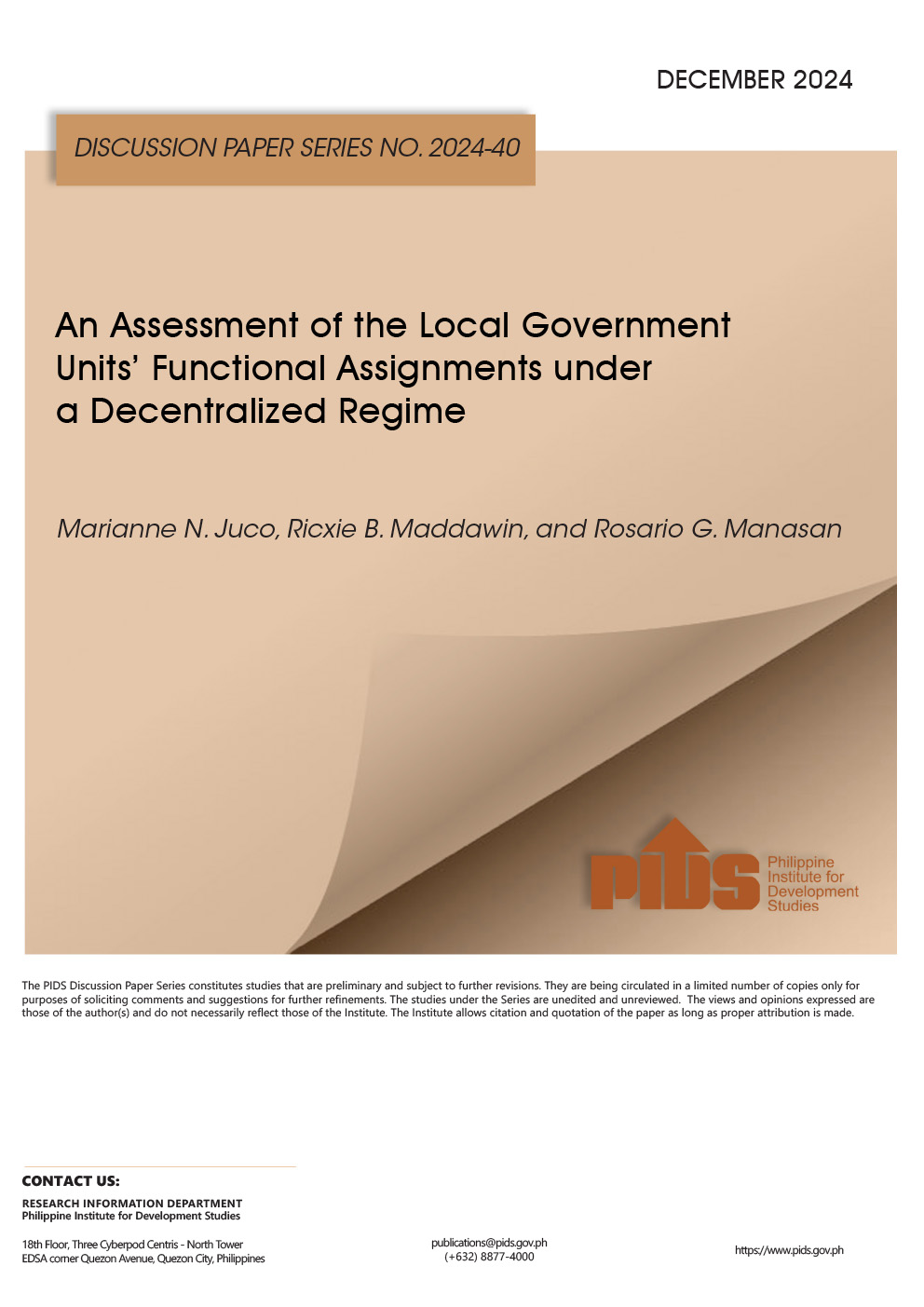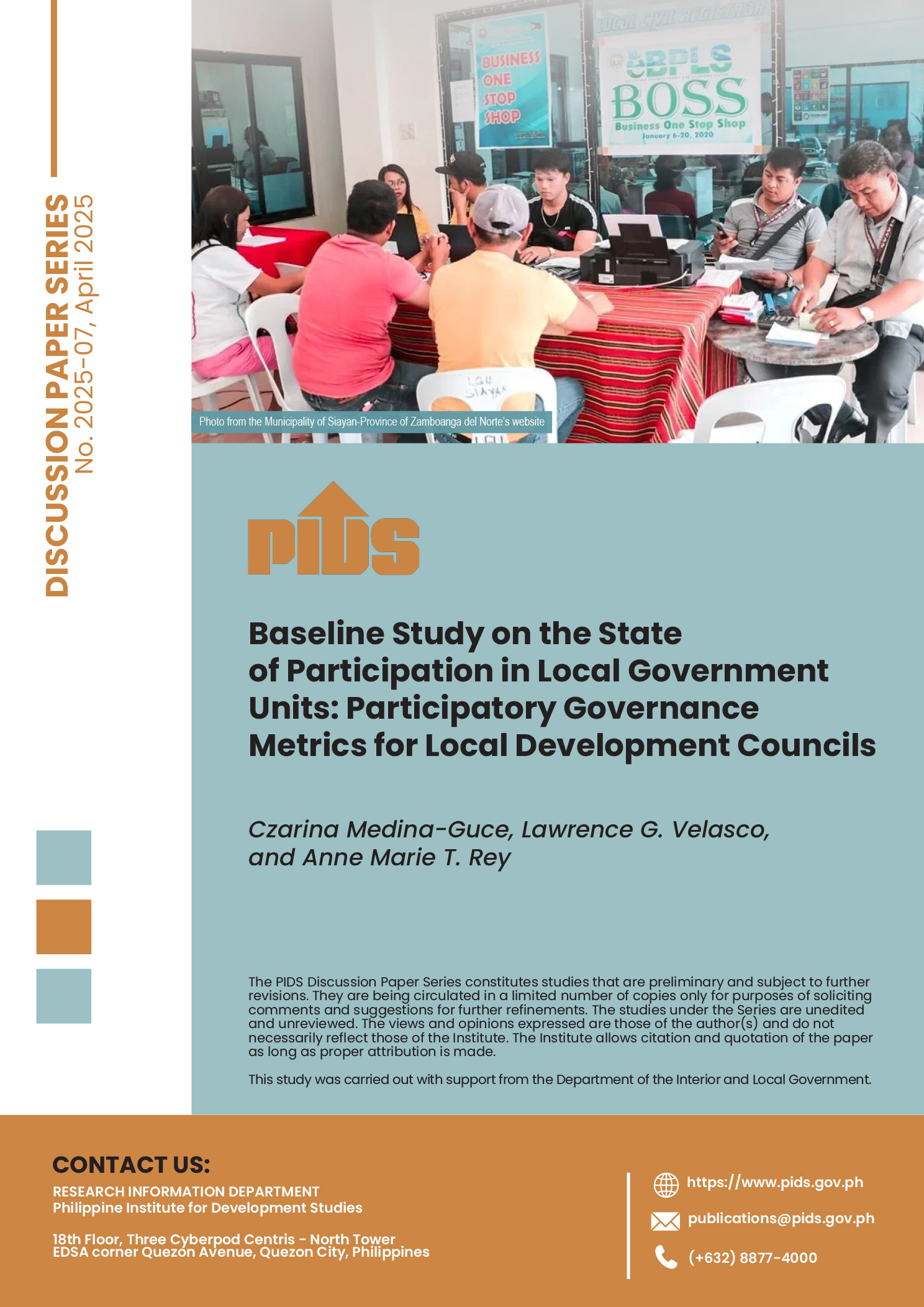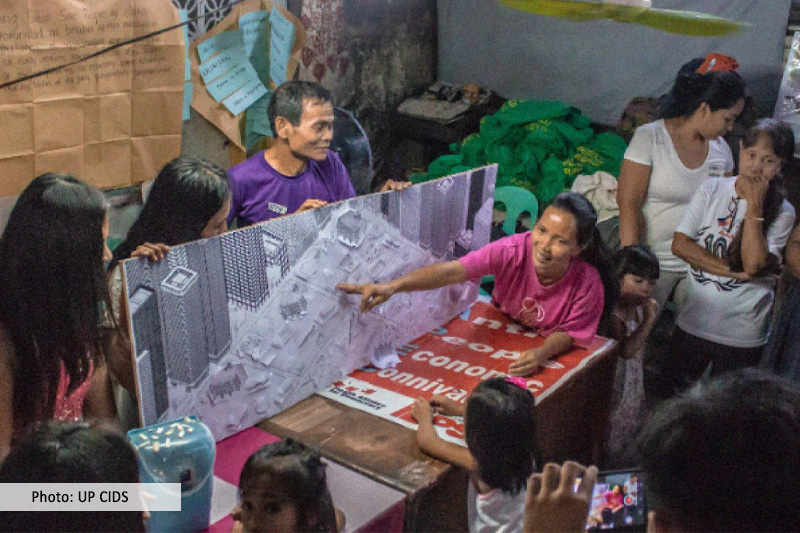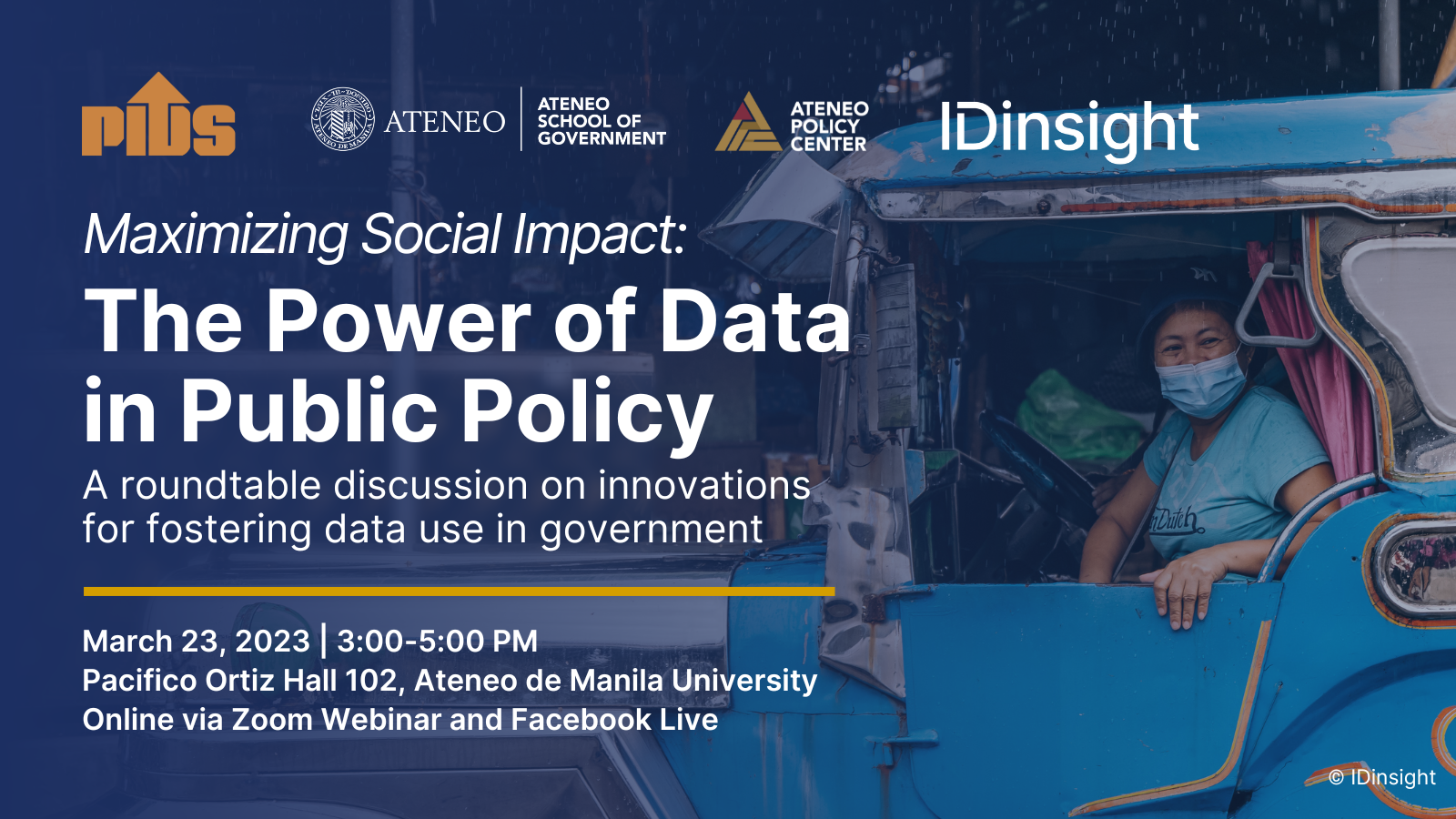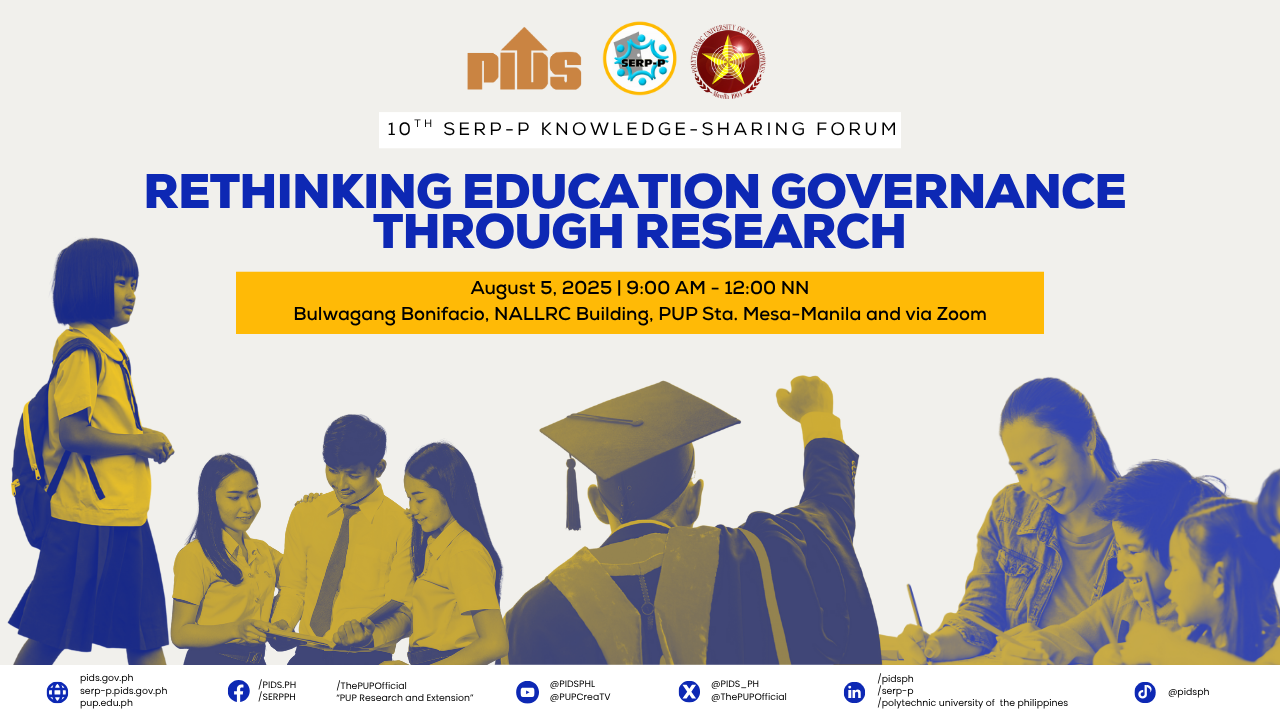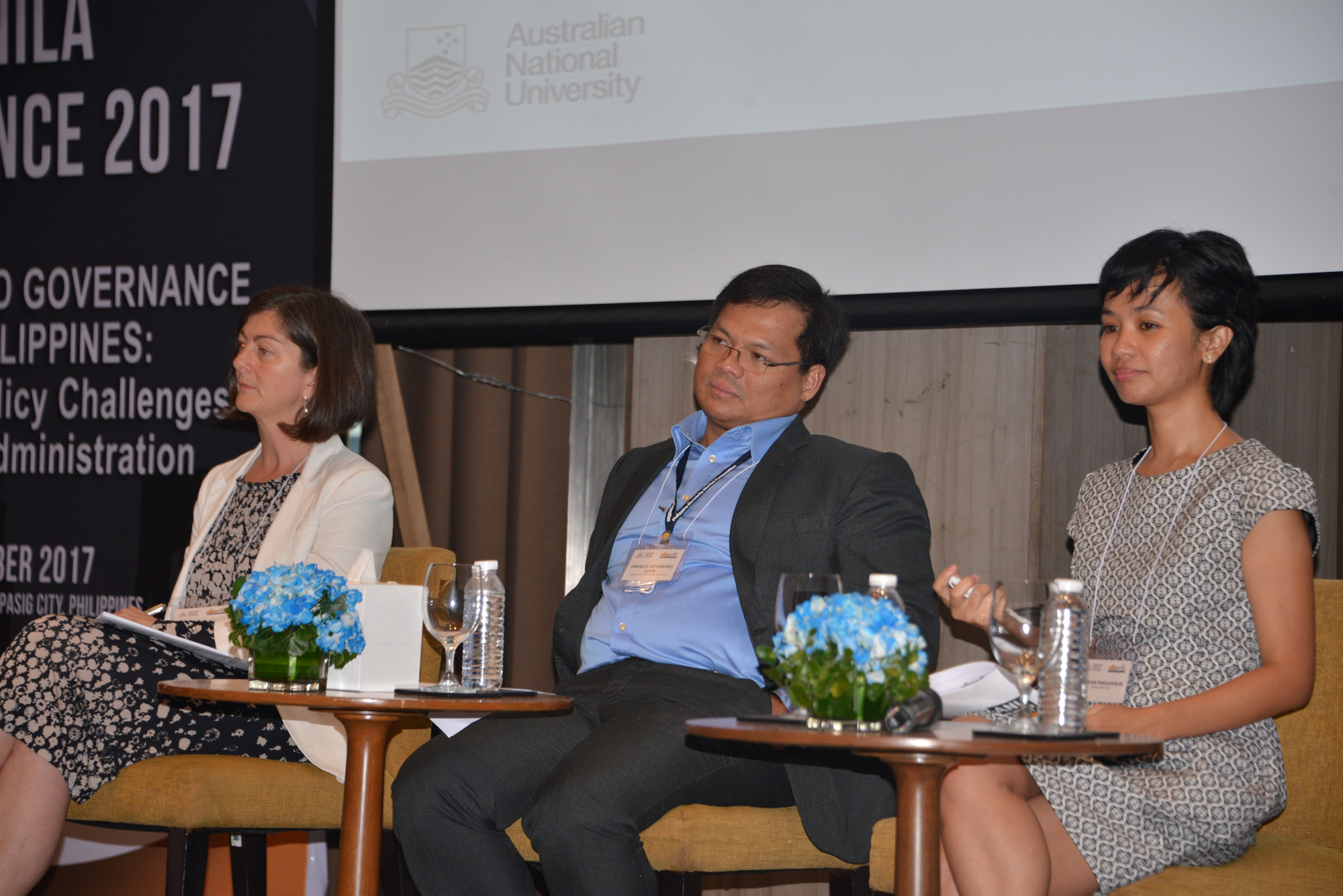
The regulatory process to effectively work entails the participation of different actors—not just government.
Prof. Sharon Friel, director of the School of Regulation and Global Governance of the Australian National University (ANU), made this point at the panel session on global standards and regulation in key sectors in a conference last October 23-24 jointly organized by ANU and state think tank Philippine Institute for Development Studies. The Manila Conference 2017 on Regulations and Governance in the Philippines: Development Policy Challenges for the New Administration explored the regulatory issues in the country and possible solutions that can be drawn from international experience.
With health as the focus of her presentation, Fiel explained the roles played by multiple actors, such as the government, schools, individuals, food producers, and retailers in promoting healthy food preferences.
For instance, schools play a big part. They can educate their students on healthy eating, set food standards in their canteens, and regulate the presence of food outlets in areas around the school where children gather.
“In the media, television chefs through their programs can significantly influence people in their food choices and preparation methods,” Field added.
Civil society organizations (CSOs), on the other hand, can serve as watchdog, sources of information on their needs and aspirations, and direct influencers in policymaking through advocacy and lobbying.
As for the government, setting of rules, imposition of taxes and penalties, and provision of incentives are among its primary tools to regulate human behavior.
Good regulations for good governance
Expounding on the role of government as a regulator, Atty. Francis Juan presented the regulatory framework of the Philippines’ energy sector. Juan is the chief operating officer of the Philippine Electric Market Corporation and formerly executive director of the Energy Regulatory Commission (ERC).
The passage of the Electric Power Industry Reform Act (EPIRA) in 2001 was expected to improve both the reliability and cost of power services in the country by opening the sector to competition. Today, the National Power Corporation, which used to monopolize production, transmission, and distribution of electric power, is involved only in providing electrification to the so-called missionary areas or the far-flung sections of the country. The different subsectors were unbundled and opened to market players.
Sixteen years later, the price of electric power has remained expensive, supply has remained tight, and maintenance issues have persisted. With an unhappy public, questions on the effectiveness of the ERC have come to the fore.
“The challenge for ERC is how it can project itself to be a strong and independent regulator as envisioned in the EPIRA. Even as it strives to fulfill its main tasks to promote competition, encourage market development, and enforce regulations in the restructured electricity market, it is met with an increasingly disapproving public,” Juan explained.
He added that an efficient regulator should possess: competent; independent, fair, and reasonable; receptive to stakeholder inputs; adaptable to changes; and firm and resolute in its decisions.
Fast-paced technology
Among these qualities, adaptiveness is one area where the government needs to step up, especially when it comes to the transport sector. This was according to Dr. Marian Panganiban, senior policy economist of Grab Southeast Asia.
“Technology is going at a very fast pace but the policy environment hasn’t been keeping up. There are instances wherein given the pace of technological innovation, previous policy questions are now irrelevant or the existing policy tools are inadequate,” Panganiban explained.
The sharing or collaborative economy is one of the most dynamic and rapidly growing sectors today yet it is also beset with regulatory issues. “Policies are needed to integrate the features of ride-hailing companies and shared economy companies into existing systems and services in ways that leverage the new services’ strengths and features,” she said.
Panganiban noted that the slow pace of government in adapting to changes is constraining it to harness technology to better regulate the sector as well as improve the quality of transport services.
Technology-enabled services, such as those introduced or used by Grab, are helping to raise the standard of service for the riding public by promoting safety for both passengers and drivers, certainty of service, and transparency in fare setting. Beyond these, the use of GPS technology is also making it possible for Grab to collect and process traffic data.
Panganiban disclosed that Grab has recently partnered with the World Bank in a project to share its anonymized GPS data with the Philippine government to help it better assess and address the traffic situation in Metro Manila. At the same time, the ride-hailing company has been actively engaging with policymakers in other countries such as Singapore and Malaysia in transport matters. ###
Prof. Sharon Friel, director of the School of Regulation and Global Governance of the Australian National University (ANU), made this point at the panel session on global standards and regulation in key sectors in a conference last October 23-24 jointly organized by ANU and state think tank Philippine Institute for Development Studies. The Manila Conference 2017 on Regulations and Governance in the Philippines: Development Policy Challenges for the New Administration explored the regulatory issues in the country and possible solutions that can be drawn from international experience.
With health as the focus of her presentation, Fiel explained the roles played by multiple actors, such as the government, schools, individuals, food producers, and retailers in promoting healthy food preferences.
For instance, schools play a big part. They can educate their students on healthy eating, set food standards in their canteens, and regulate the presence of food outlets in areas around the school where children gather.
“In the media, television chefs through their programs can significantly influence people in their food choices and preparation methods,” Field added.
Civil society organizations (CSOs), on the other hand, can serve as watchdog, sources of information on their needs and aspirations, and direct influencers in policymaking through advocacy and lobbying.
As for the government, setting of rules, imposition of taxes and penalties, and provision of incentives are among its primary tools to regulate human behavior.
Good regulations for good governance
Expounding on the role of government as a regulator, Atty. Francis Juan presented the regulatory framework of the Philippines’ energy sector. Juan is the chief operating officer of the Philippine Electric Market Corporation and formerly executive director of the Energy Regulatory Commission (ERC).
The passage of the Electric Power Industry Reform Act (EPIRA) in 2001 was expected to improve both the reliability and cost of power services in the country by opening the sector to competition. Today, the National Power Corporation, which used to monopolize production, transmission, and distribution of electric power, is involved only in providing electrification to the so-called missionary areas or the far-flung sections of the country. The different subsectors were unbundled and opened to market players.
Sixteen years later, the price of electric power has remained expensive, supply has remained tight, and maintenance issues have persisted. With an unhappy public, questions on the effectiveness of the ERC have come to the fore.
“The challenge for ERC is how it can project itself to be a strong and independent regulator as envisioned in the EPIRA. Even as it strives to fulfill its main tasks to promote competition, encourage market development, and enforce regulations in the restructured electricity market, it is met with an increasingly disapproving public,” Juan explained.
He added that an efficient regulator should possess: competent; independent, fair, and reasonable; receptive to stakeholder inputs; adaptable to changes; and firm and resolute in its decisions.
Fast-paced technology
Among these qualities, adaptiveness is one area where the government needs to step up, especially when it comes to the transport sector. This was according to Dr. Marian Panganiban, senior policy economist of Grab Southeast Asia.
“Technology is going at a very fast pace but the policy environment hasn’t been keeping up. There are instances wherein given the pace of technological innovation, previous policy questions are now irrelevant or the existing policy tools are inadequate,” Panganiban explained.
The sharing or collaborative economy is one of the most dynamic and rapidly growing sectors today yet it is also beset with regulatory issues. “Policies are needed to integrate the features of ride-hailing companies and shared economy companies into existing systems and services in ways that leverage the new services’ strengths and features,” she said.
Panganiban noted that the slow pace of government in adapting to changes is constraining it to harness technology to better regulate the sector as well as improve the quality of transport services.
Technology-enabled services, such as those introduced or used by Grab, are helping to raise the standard of service for the riding public by promoting safety for both passengers and drivers, certainty of service, and transparency in fare setting. Beyond these, the use of GPS technology is also making it possible for Grab to collect and process traffic data.
Panganiban disclosed that Grab has recently partnered with the World Bank in a project to share its anonymized GPS data with the Philippine government to help it better assess and address the traffic situation in Metro Manila. At the same time, the ride-hailing company has been actively engaging with policymakers in other countries such as Singapore and Malaysia in transport matters. ###

